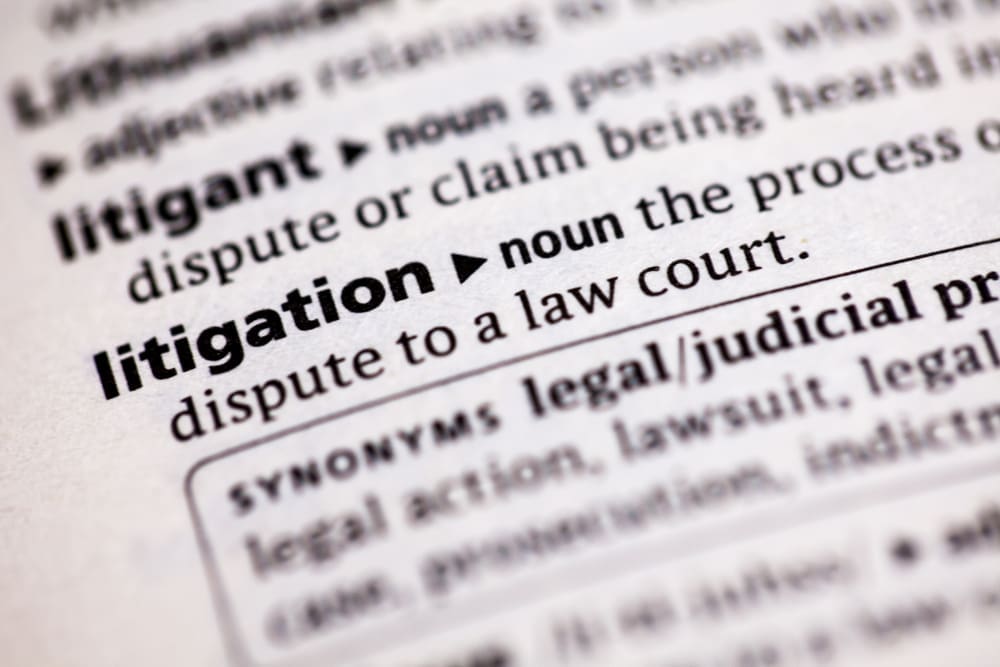 There are many terms family lawyers throw around when discussing the options available to parties who are separating. While they may sound similar, terms like mediation, arbitration and litigation in fact serve difference purposes and involve distinct processes.
There are many terms family lawyers throw around when discussing the options available to parties who are separating. While they may sound similar, terms like mediation, arbitration and litigation in fact serve difference purposes and involve distinct processes.
Here's an easy to understand description of each.
Mediation
Mediation is an alternative dispute resolution (“ADR”) process whereby an independent, neutral third party, a mediator, assists in encouraging discussions between parties. This is done in the hopes of reaching an amicable resolution.
Mediation is a non-binding process and any discussions/negotiations between parties is confidential. Neither party is required (i.e., forced) to agree to either a distribution of property or a parenting arrangement. Any agreement reached must be agreed to by consent, which can be made formally binding by the Court by way of an Application for Consent Orders.
Parties are allowed to openly discuss any issues between them at a mediation, with the assistance of a mediator. The focus is on developing a tailored agreement suitable to the parties' individual circumstances. That is, the parties decide the outcome of their matter, rather than a third party, such as a judge, deciding outcome for them.
Mediation is usually a method of ADR undertaken prior to parties considering initiating proceedings in Court, which is usually the last resort. However, mediation is always an option even whilst proceedings are ongoing in Court.
The benefit of mediation is that it gives parties the opportunity to come to an agreement between themselves which is tailormade to their circumstances. It will also save them the often exorbitant cost of litigating.
The downside of mediation is that it is a voluntary process and any party can walk out at any time and an agreement may not be reached. The role of the mediator is not to make a decision regarding the distribution of property or a parenting arrangement, but only to encourage the negotiation process and focus the parties on coming to an agreement.
Arbitration
Arbitration is a voluntary process which can be undertaken either by agreement between the parties or referred by the Court (if consented to). However, the end result of an Arbitration is binding on parties as a third party accredited arbitrator makes a determination about the division of property, or an issue in dispute between parties.
Arbitration can only be used for property disputes, and not parenting. That is, an arbitrator cannot make a determination regarding a parenting arrangement.
A benefit of Arbitration is that it is both time and cost effective, particularly given the significant delay and backlog in the Family Courts, whereby parties generally wait between 2 to 3 years before a final hearing is held. Arbitration can be held within a few months of parties agreeing for an Arbitration to be held.
Unlike a final hearing, Arbitration allows parties to limit their negotiations to specific issues. In a final hearing, a myriad of issues must be determined. This costs parties more money and can take extra time; up to 5 days.
The outcome of an arbitration, called an Award, is absolute, and may only be appealed on an error of law.
Litigation
Litigation is when theis matter is initiated in the Family Court. This an expensive and lengthy process which may take up to 3 years or even longer. The backlog in the Family Courts is excessive and can make the experience extremely emotionally draining.
The benefit of the Court system is that Orders are made to progress the matter to a stage whereby it is ready to be determined on a final basis. However, the Courts always encourage parties to resolve their matters by way of alternative dispute resolution, which is significantly faster and can be undertaken prior to or during the course of litigation.
Litigation is always the last course of action.
If you would like to discuss anything further with our experts at Freedman & Gopalan Solicitors, call us on 02 8999 9837.
